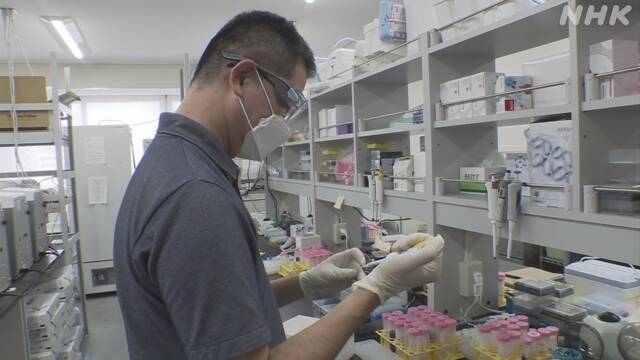Nagoya University New Corona Artificial Antibodies Succeeded in Promptly Making September 19 4:33
Research groups such as Nagoya University have succeeded in quickly and artificially producing proteins similar to "antibodies" that are produced in the body when infected with the new corona virus, and announced that they have confirmed that they can suppress cell infection.
The research group says that it has the potential to be applied to the development of new therapeutic agents.
Professor Hiroshi Murakami of Nagoya University and a research group at the Nagoya Medical Center have succeeded in producing antibodies.
When infected with the new coronavirus, a protein called an "antibody" is produced in the body, which is said to prevent the virus from entering cells.
Until now, it took at least several weeks to artificially produce antibodies, but the research group has a new method called "TRAP presentation method" that quickly selects those that bind to a specific virus from more than 10 trillion artificial antibodies. It means that he developed the technology and succeeded in producing an antibody against the new coronavirus in 4 days.
In addition, the artificially produced antibody has the characteristic of binding very strongly only to the new coronavirus, and it was confirmed that it suppresses the infection of the virus to cells.
The research group says that the antibody has the potential to be applied to tests for infection and the development of new treatments.
The research results will be published in the electronic version of the American scientific journal "Science Advances" on the 19th.

